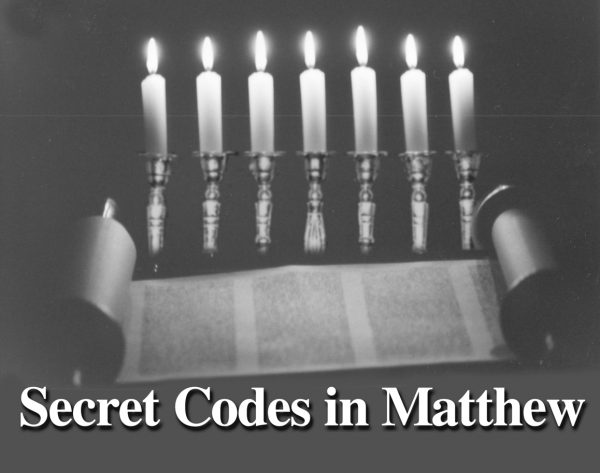The Secret Codes in Matthew: Examining Israel’s Messiah, Part 10: Matthew 15, by Kevin M. Williams

Then some Pharisees and scribes came to Jesus from Jerusalem, saying, “Why do Your disciples transgress the tradition of the elders? For they do not wash their hands when they eat bread” (Matthew 15:1-2).1
The Pharisees we encounter here seem to be challenging Yeshua (Jesus)2 once again. Certainly, given our studies so far, we may suspect their motives. Yet the fact that they asked questions does not necessarily imply that they were attacking the Messiah. Rather, it seems, this may be an instance when they were trying to ascertain Yeshua’s theology.
Indeed, we can learn quite a bit from this exchange. The issue at hand is not the Torah of Moses, but the “tradition of the elders,” also commonly referred to as the oral law. The specific “tradition” in question is the washing of hands—an observance called n’tilat-yadayim.
The Pharisees, as we have discussed in previous chapters, were fastidious about ritual purity. They would go to extremes to avoid coming into contact with any unclean thing. One of the results of what may seem to be obsessive-compulsive behavior were the additional rules meant to be “helps” for avoiding ritual impurity.
In the Talmud, tractate Tosefta Berakhot 5:27, is a section regarding the cleanness of hands and food:
The School of Shammai say, “One wipes his hands on the napkin, and places it on the table, lest the liquid in the napkin become unclean because of the cushion, and returns and renders the hands unclean.” The School of Hillel say, “(In case of) doubt concerning liquid on the hands, they are clean.” Another interpretation: “One does not wash the hands for common food. But one wipes his hands on the napkin, and places it on the cushion, lest the liquid in the napkin become unclean because of the table, and return and render the food unclean.”
This is an example of the type of discourse found in the multi-volume Torah commentary—the Talmud. We have represented here both the School of Shammai and the School of Hillel. Shammai was considered by most to be very rigid and highly conservative in its interpretation and application of both the Torah and the oral tradition.
The School of Hillel, on the other hand, was considered far more liberal in its approach. From the School of Hillel came the great Rabbi Gamliel, the teacher of the apostle Paul (Acts 22:3). In modern Orthodox Judaism, which is considered by many to be rather strict, the teachings of the liberal Hillel stood the test of time and are most often applied (which causes one to wonder how exacting Shammai’s teachings must have been!).
The questions the Pharisees put before Yeshua may have been a litmus test to find out with which school of thought Yeshua approved. Shammai was adamant about keeping the fingers clean. He taught that the hands could become “unclean” rather easily and thereby render any food being eaten as ritually unclean. Once a person ingested something ritually unclean, he or she also became unclean, and other laws of separation may be applied.
The School of Hillel on the other hand, took a more liberated approach. Their basic philosophy was, when in doubt, “the hands, they are clean.”
Many of the debates carried out two thousand years ago between the various schools of thought have resulted in contemporary observances. In modern Jewish orthodoxy, the tradition of n’tilat-yadayim lives on. In modern Orthodoxy it is believed the dinner table is symbolic of the holy altar and the meal representative of the holy sacrifice. Therefore, a basin is kept nearby so that before every meal the patriarch—the head of the house and symbolic priest of his home—can ceremonially wash his hands before eating just as the Levites washed before assuming their priestly duties.
Category: Biblical Studies, Pneuma Review, Summer 2003


